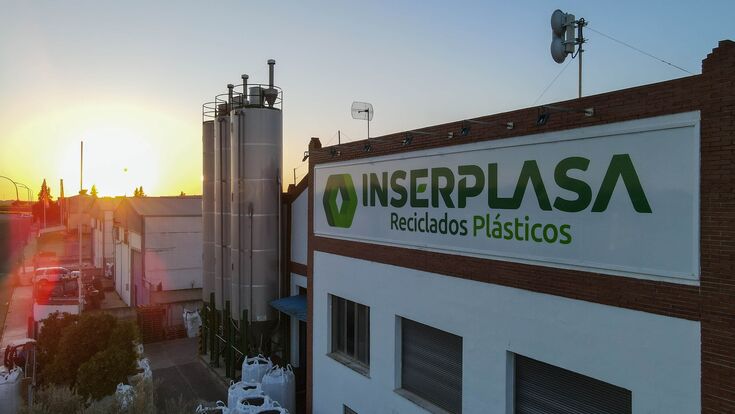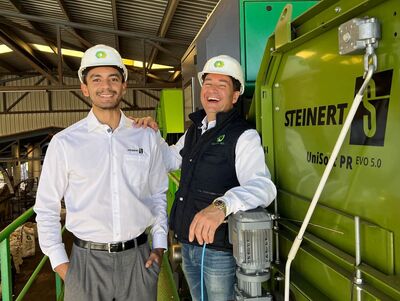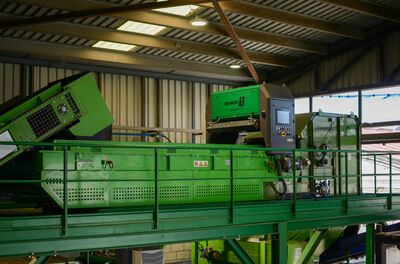Plastic Recycling : INSERPLASA faces the current challenges in plastics recycling with modern sorting technologies from STEINERT

Pioneering work in plastics recycling in Spain
It all began in 1986, when the Managing Director's father and a childhood friend decided to collect, process and convert plastics in order to obtain valuable new materials. At the time, such measures were still viewed with extreme scepticism. On their voyage of discovery through this unknown territory, they became personally acquainted with the challenges of plastics recycling. These initial endeavours laid the foundations for a company that would become a leader in environmental solutions in Spain.
"Initially, we sorted the bottles by colour. Later, the bottles were labelled, which made things a little more difficult. Then the labels became sleeves that wrapped around the entire bottle. This made it more complicated and we looked for help," says Juanjo Sánchez
The start of the collaboration with STEINERT marked a turning point for INSERPLASA. As Juanjo Sánchez, the son of one of the founders, recalls, the process was as challenging as it was rewarding. With the introduction of modern sorting technologies from STEINERT, INSERPLASA succeeded in setting new standards in the efficiency and quality of its operations. The new technology did not simply improve the situation, but changed it so fundamentally that INSERPLASA was able to position itself at the forefront of the recycling industry.

An ecological and economic leap at the same time
The integration of STEINERT's UniSort PR EVO 5.0 NIR (near-infrared) sorting systems at INSERPLASA was tantamount to an operational revolution. Using sorting programs based on artificial intelligence and a combination of high-resolution HSI (Hyper Spectral Imaging) and colour sensors, these systems are able to identify complex plastics that could not previously be distinguished. INSERPLASA can now produce recyclates made from polyethylene (PE, HD-PE, LD-PE), polypropylene (PP) and polyethylene terephthalate (PET) in different colours.
Sánchez emphasises the transformative effect of the new technologies. The modern new sorting systems have not only improved the purity and quality of plastic recyclates, but also operational efficiency. INSERPLASA has expanded its capacity with this technical leap and can now process more plastics than before - with reduced energy consumption.

INSERPLASA is now setting standards in sustainability and innovation. With its goal of producing high-quality plastic recyclates, the company has not only improved its market position, but also demonstrated its commitment to the environment. The increased capacity and improved environmental and corporate footprint are testament to the success of the partnership with STEINERT. Together, the two companies demonstrate how challenges can be turned into opportunities and point the way to a more sustainable future.
"We liked the robustness and precision, but also the impressive quality. Yes, there are cheaper suppliers. We know that. But some components have their price, and if you want quality, you have to pay for it."
Future prospects for a sustainable partnership
There are already plans to introduce even more modern sorting technologies, which, supported by STEINERT's technical expertise, will further improve the quality and efficiency of the plastic recyclates and open up new markets. "INSERPLASA has grown not only because we do a good job, but also because we work in partnership with co-operative companies that also do a great job. We want to improve recycling even more. I am convinced that we can achieve this with people and companies like STEINERT."

